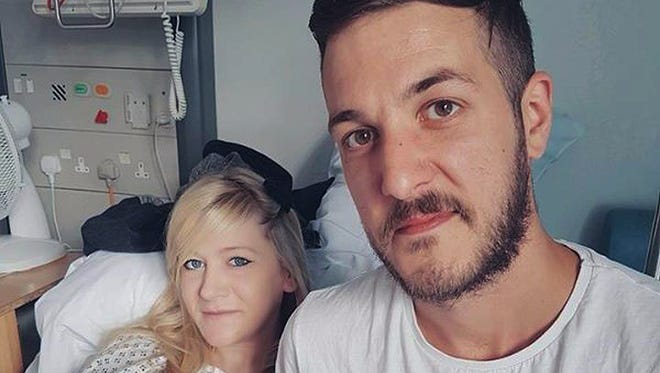Charlie Gard: London judge sets deadline for moving terminally ill baby to hospice
 Jane Onyanga-Omara
Jane Onyanga-Omara
LONDON — A judge said Wednesday that terminally ill Charlie Gard would be moved to a hospice to die unless his parents and the hospital treating him agree on his end-of-life plan by 12 p.m. tomorrow.
Judge Nicholas Francis said “it is in Charlie’s best interests to be moved to a hospice and for him at that point to be moved to a palliative care regime only,” the Associated Press reports.
The parents of Charlie Gard appear to have dropped their request for the 11-month old infant to die at home in favor of their son being cared for in hospice. Connie Yates returned to London’s High Court Wednesday to request a medical team that could keep her son alive for a week under hospice care rather than a few hours, according to the AP.
Great Ormond Street Hospital said it was not practical to provide life-support treatment for days at the couple’s home.
Chris Gard and Connie Yates on Monday ended a months-long legal battle to take him to the United States for experimental treatment.
Charlie suffers from mitochondrial depletion syndrome, a rare genetic disease. He is brain damaged, cannot breathe unassisted and is deaf and blind.
His parents accepted Monday that his condition has deteriorated to the point where the experimental nucleoside therapy developed by Michio Hirano, a professor of neurology at Columbia University Medical Center in New York, would not work.
Doctors at Great Ormond Street Hospital in the British capital, where Charlie has been cared for since he was admitted in October, say he should remain at the hospital or be taken to a hospice due to the difficulties of providing him with the appropriate care at home.
The hospital has not given an indication when it will turn off his life-support machines.
"We are about to do the hardest thing that we will ever have to do, which is to let our beautiful little Charlie go," the infant's father, Chris Gard, said outside the court in London on Monday.
He said he did not expect his son to live beyond his first birthday on Aug. 4.
In a statement Tuesday, Dr. Hirano said: "I became involved in Charlie's case when I was contacted by his parents, and I subsequently agreed to speak with his doctors to discuss whether an experimental therapy being developed in my lab could provide meaningful clinical improvement in Charlie's condition.
"Unfortunately, a MRI scan of Charlie's muscle tissue conducted in the past week has revealed that it is very unlikely that he would benefit from this treatment."
He said he had no financial interest in the treatment being developed for Charlie's condition.
The case has received widespread attention worldwide with Pope Francis and President Trump weighing in to offer assistance to Charlie and his parents.
In Britain, the courts make right-to-life decisions, not the patients or families, as is the case in the United States.
READ MORE:
Charlie Gard's parents want to take him home to die
Charlie Gard case overshadows battle of man who wants right to die
Readers sound off: Charlie Gard’s life wasn’t in his parent’s hands